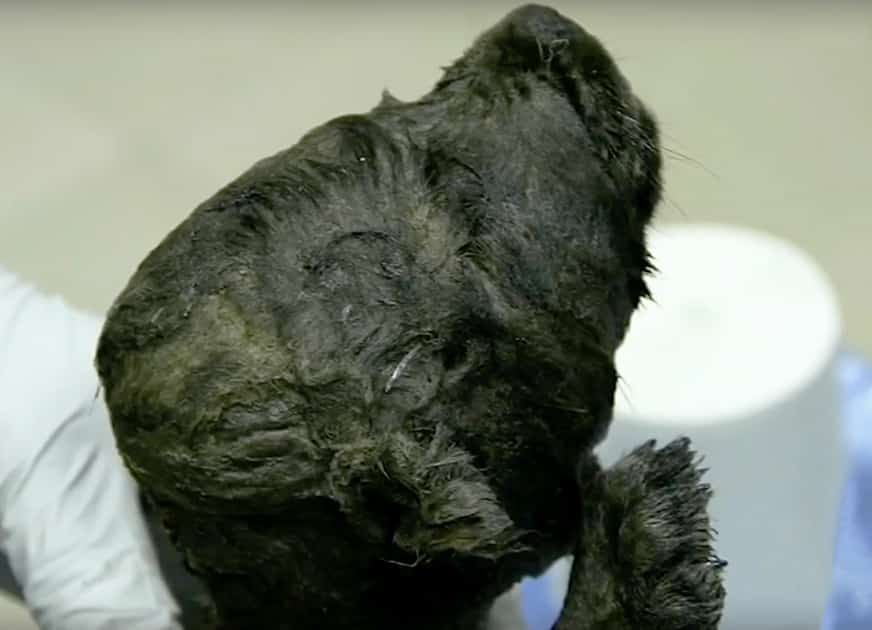News by
Travel + Leisure on
A preserved prehistoric puppy thought to be 18,000 years old — or way older in dog years — was recently revealed in Russia.
The animal was discovered by Russian scientists in permafrost in frozen mud near the city of Yakutsk in the Far East of the country, CBS News reported. The puppy, which appeared to be about 2 months old when it died, was found last year and was just now unveiled.
The puppy was named “Dogor,” a Yakutian word for friend.
“This puppy has all its limbs, pelage – fur, even whiskers. The nose is visible. There are teeth. We can determine due to some data that it is a male,” Nikolai Androsov, director of the Northern World private museum where the dog is stored, told CBS News.
Yakutsk, where the puppy was found, is known for its extreme freezing temperatures in winter with a photo going viral last year of a woman there posing in the snow with frozen eyelashes.
After the dog was found, CBS News reported that scientists from the Center for Palaeogenetics, which is based in Stockholm, took a piece of its bone to study for DNA, determining it wasn’t possible to tell if the puppy was a dog or a wolf.
“The first step was of course to send the sample to radio carbon dating to see how old it was and when we got the results back it turned out that it was roughly 18,000 years old,” Love Dalén, a professor of evolutionary genetics at the center, told the network. “We have now generated a nearly complete genome sequence from it and normally when you have a two-fold coverage genome, which is what we have, you should be able to relatively easily say whether it’s a dog or a wolf, but we still can’t say and that makes it even more interesting.”
Many scientists believe dogs evolved from a species of extinct wolves about 15,000 years ago, The New York Times reported, while others believe it may have happened at least 30,000 years ago.
This isn’t the first time melting ice has revealed something previously hidden.
In October, the Russian navy said glacial melting revealed five new islands in the arctic. And in January, researchers from the University of Colorado Boulder said melting glaciers helped them discover landscapes in the Canadian Arctic that had been hidden for more than 40,000 years.
Comments
Add comment